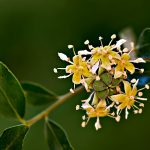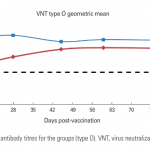
High Purified Extracts from the Quillaja tree (Quillay) help to reduce antibiotic use in the salmon farming industry.
The main results of these developments were patented in four countries, after undergoing the PCT process.
In 2014, the Saponin Research Center from Desert King Chile began an extensive research process to evaluate the potential use of aqueous extracts from the Chilean native tree “Quillay” (Quillaja saponaria Mol) in controlling the bacterium Piscirickettsia salmonis, the etiological agent of the Salmon Rickettsial Syndrome (SRS), the main cause of antibiotic use in the salmon farming industry.
More than eight years of Research, Development, and Innovation (R&D&I) activities have been carried out by a multidisciplinary team led by Trinidad Schlotterbeck and Hernán Cortés. This has involved a Corfo project called «Prevention and control of SRS using saponins from Quillaja saponaria» which followed a Conicyt-supported project in 2014, allowing the incorporation of Drs. Hernán Cañón and Mario Castillo into the team during the initial development phase via the Advanced Human Capital Attraction and Insertion Program.
Research has encompassed in vitro and in vivo experimental stages (efficacy in freshwater and seawater) and involved collaborations with various institutions and researchers such as Activaq, the Universidad de Santiago de Chile (USACh) with the Dr. Ana María Sandino, and the Universidad Austral de Chile (UACh) with the Drs. Ricardo Enríquez and Alex Romero, for in vitro and in vivo validation trials. This included evaluating different Quillaja saponaria extracts with varying levels of saponin purification, that allowed to define optimal product doses and simultaneously reach a purified Quillaja extract with a specific saponin profile for SRS control, which was subsequently used in the validation phase at seawater, Trinidad Schlotterbeck stated.
According to reports, the initial in vitro efficacy trial results with Piscirickettsia salmonis infection in cell lines showed 98% protection, using only a 2.5% dose of the purified quillaja extract compared to the EC90 cytotoxicity dose. In vivo trials with Salmo salar fingerlings (Atlantic salmon) conducted at Activaq under an intraperitoneal infection (IP) scheme reduced 36% of deaths caused by Piscirickettsia salmonis in those supplemented orally with the purified quillaja product, prior to the challenge with the bacteria. Additionally, in vivo trials with Salmo salar smolts at UACh under a cohabitation infection scheme, reduced 53% of deaths caused by SRS in fish supplemented with the quillaja product.
The pilot-scale validation trial under commercial conditions during the sea fattening phase was conducted at Mowi’s Huenquillahue Center in late 2017 and early 2018 in the framework of the Corfo project. The results from this field trial were promising, reducing the mortalities by SRS in 53%, and the antibiotic use in 66%, prompting considerations for further industrial-scale implementation.
Currently, validations in more than 50 salmon centers have been developed at industrial conditions, and three salmon companies already include the product as a natural non-pharmacological tool in their health program. This purified quillaja saponin extract has been named PAQ-Xtract and is marketed by Phibro Animal Health. The main results of these developments have been patented in Norway, USA, Canada and Chile, having undergone the Patent Cooperation Treaty (PCT) process.
To elucidate part of the mechanism of action of PAQ-Xtract behind the results obtained, both in vitro and in vivo, we conducted a study on its effects on macrophage-like cell lines, their functionality, and the effects on bacteria. The study was conducted at PUCV and was supported by Drs. Sergio Marshall and Fernando Gómez.
In general, we found that the purified extract (PAQ-Xtract) does not have a direct antimicrobial effect on P. salmonis, but they do reduce the invasion and intracellular replication of the bacterium in macrophages (SHK-1), reduce the expression of bacterial genes encoding virulence factors, regulate genes of the innate and adaptive immune response, and favor key physiological processes in the innate immune response, such as phago-lysosome fusion. All this process are important in affect the life cycle of the bacterium and facilitate the communication between cell from the innate and the adaptive immune response, key in the control of intracellular pathogens as P.salmonis.
Desert King Chile has over 20 years of experience in Quillaja saponaria saponin markets, pioneering responsible management of native forests and productive plantations for this market.





